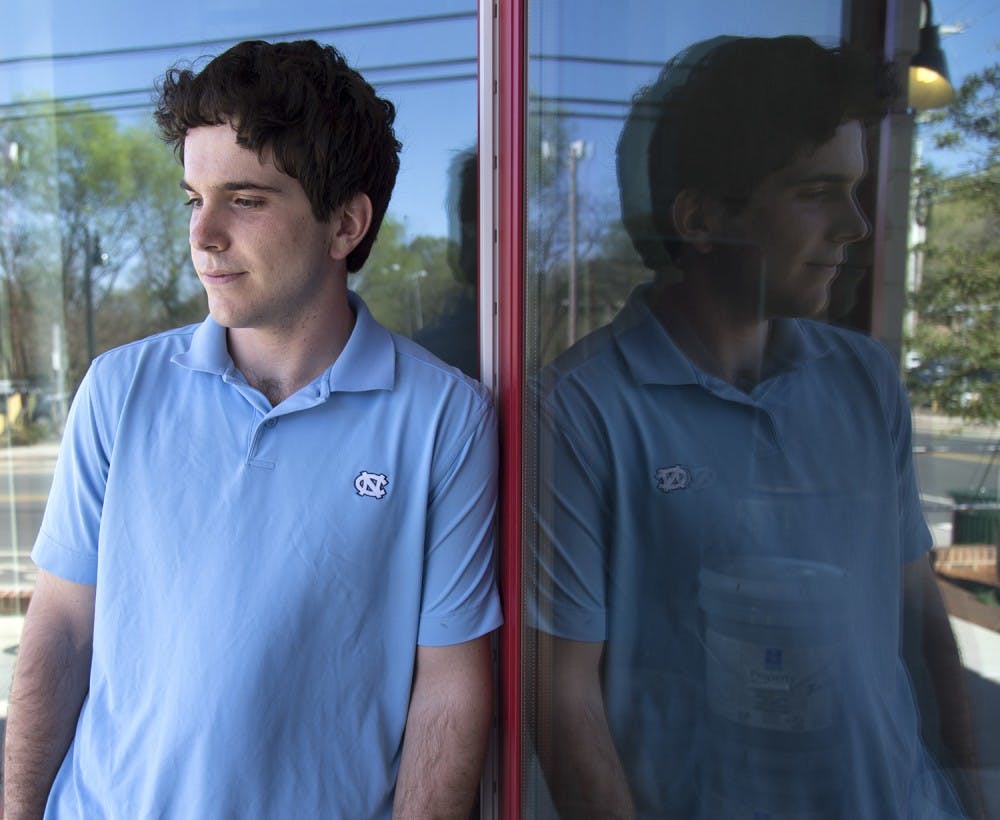Around 50 students at UNC, both undergraduate and graduate students, are in the recovery program. But Blackburn says statistically at a university of UNC’s size, it’s likely that about 400 students struggle with substance abuse, but Student Wellness only knows of the 50 enrolled.
The University is one of six schools receiving a pilot grant from the state to fund recovery programs. The grant, worth $125,000 per year for three years, has helped the program expand and hire staff.
Frank Allison, coordinator of the Carolina Recovery Program, said this is the last year for the pilot grant, but there are other streams of revenue for the program, including grants from other organizations and UNC offices. UNC’s program is also a member of the Association of Recovery in Higher Education.
In the program, Blackburn meets with each of the students and sets them up with the resources they need to finish their degrees. And both Blackburn and Allison talk with students about best practices for staying sober on a college campus.
On campus, alcohol and drug addictions are seen as medical conditions, meaning if students are struggling, they can take medical leave and work with the University to take steps to battle their addictions and seek off-campus help — if they want. When a student chooses that option, the Student Wellness office communicates with the student’s family and medical provider while they are away from the University.
Whether they’re students who want to stay enrolled or students returning to campus after withdrawing, the Carolina Recovery Program aims to make campus life more manageable.
“We try to work together to make sure the student is getting the help they need,” he said.
Allison has been coordinator for almost a year now. He is also in long-term recovery, making this program near to his heart.
UNC’s program provides peer-to-peer support; they don’t have a clear 12-step program like Alcoholics Anonymous or Narcotics Anonymous.
Allison said the on-campus program includes academic counseling, alcohol-free social events and etiquette dinner tips that include how to turn down a drink.
“This is stuff students not in recovery don’t have to know,” he said. “I don’t ever want a student to have to choose between recovery and their education.”
Allison hopes the program will continue to expand and that people come forward.
To get the day's news and headlines in your inbox each morning, sign up for our email newsletters.
“Recovery is real,” he said. “People recover, and it happens on our campus every day.”
Student life
Allen said navigating life on campus is hard.
“I haven’t gotten past the feeling that I’m missing out,” he said.
He knows not everyone on campus drinks, but he said sometimes it feels that way.
“You feel excluded when you think about it,” he said.
Allen said he still has down days, and he’s trying to get better at communicating his feelings.
During his down days, he said the hardest part is learning different ways to cope instead of turning to drugs to deal with stress.
Allison said the program helps students cope and maintain a normal life, without alcohol or other substances.
“(For) most programs, we do provide recovery protection because we are providing opportunities for students to enjoy life in recovery,” he said.
Allen said after he joined the program, he noticed an almost immediate change in his academic life. He would always cram the night before tests and work hard to hold the information. Now, it is easier for him to study, and his grades have improved.
Looking to the future
Blackburn and Allison have big goals for the program.
Allison hopes to have a permanent drop-in location on campus soon, similar to how Counseling and Psychological Services or the Carolina Women’s Center’s drop-in hours work.
Blackburn hopes to have a residence hall for students living in recovery on campus. He said the Balance Residential Learning Program in Joyner Hall is the closest thing at the moment, focusing on healthy living for all students.
Allen said being the vice president of the Carolina Recovery Group, a student-led group under the program, has taught him valuable skills he can take when he leaves the University, such as teamwork and communication.
He also said the recovery program gave him the tools to manage and maintain his recovery outside of school.
“I feel much more prepared for the future than I did, looking back.”
@SUGARcain_
special.projects@dailytarheel.com




